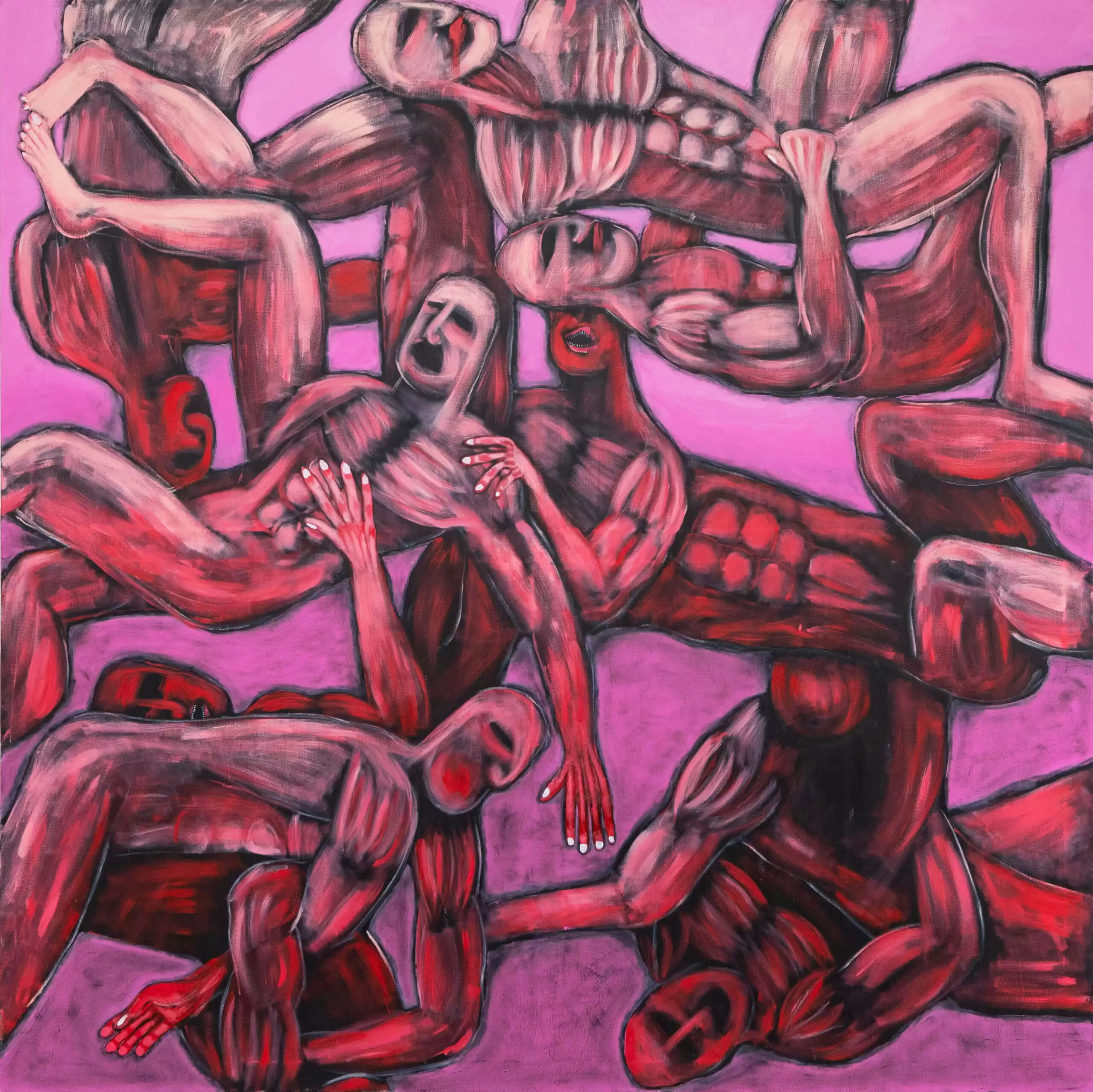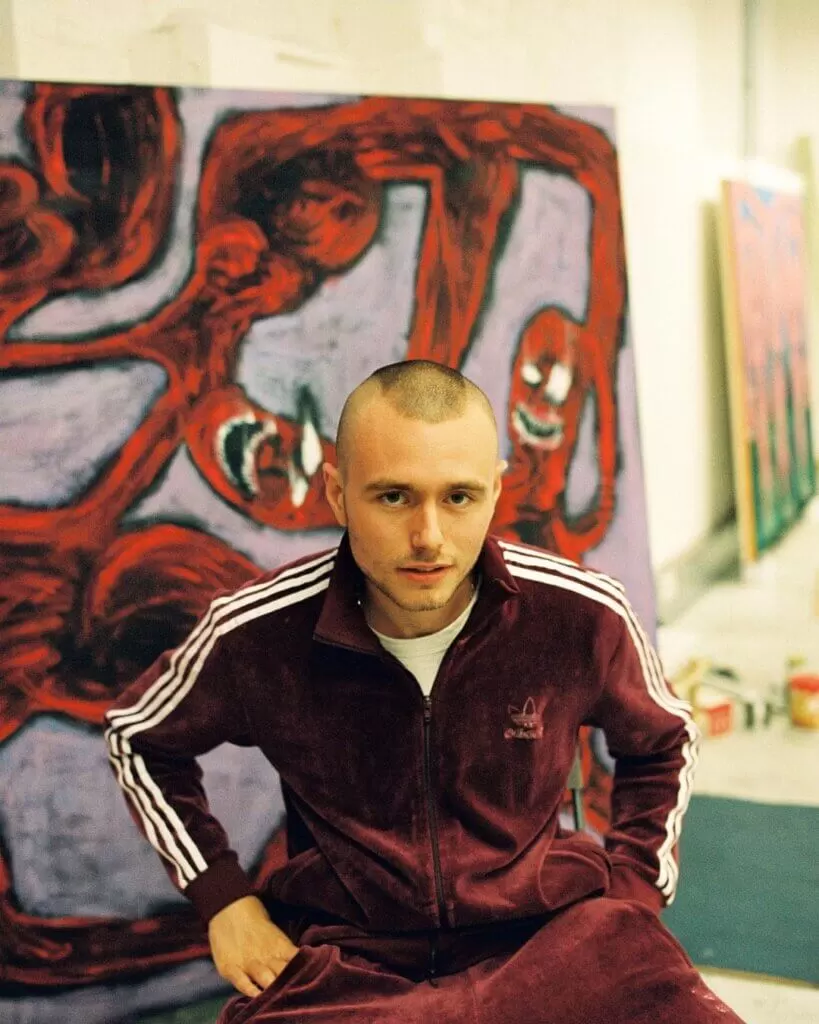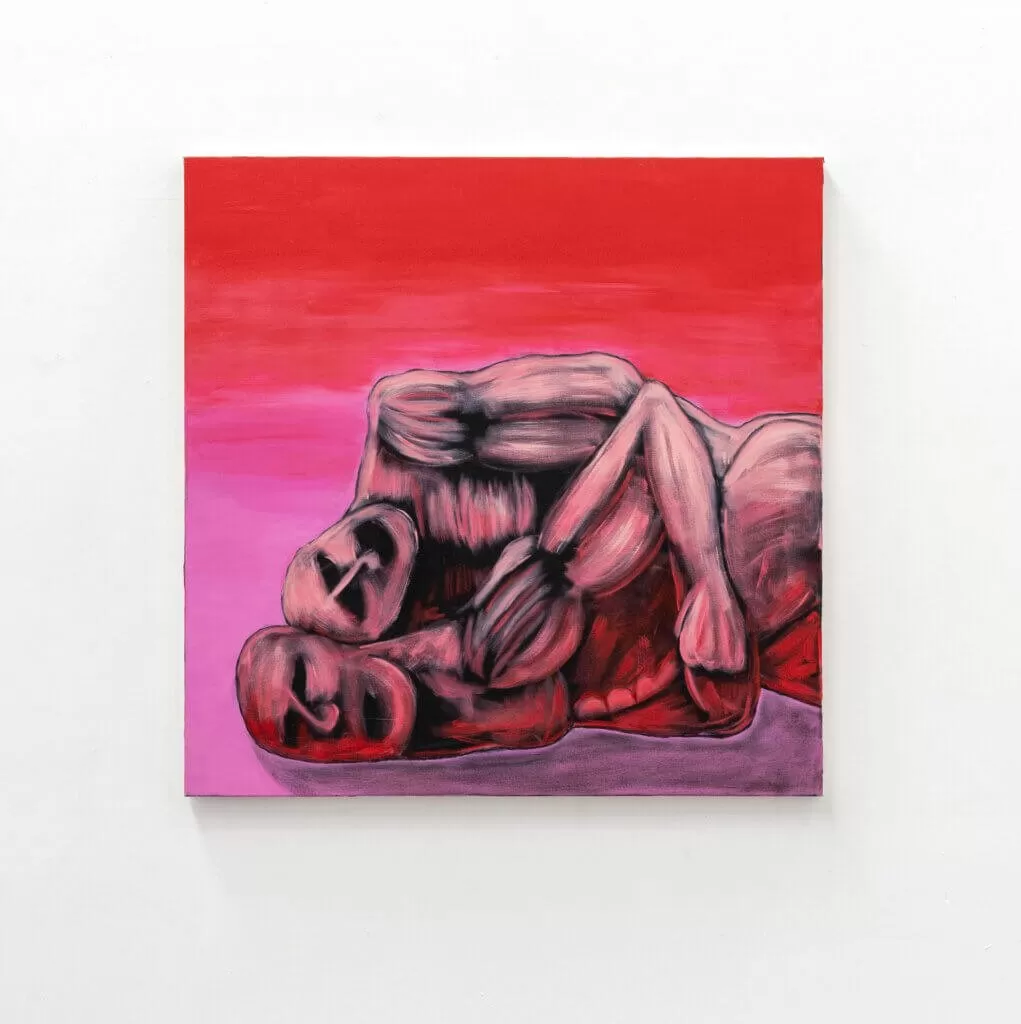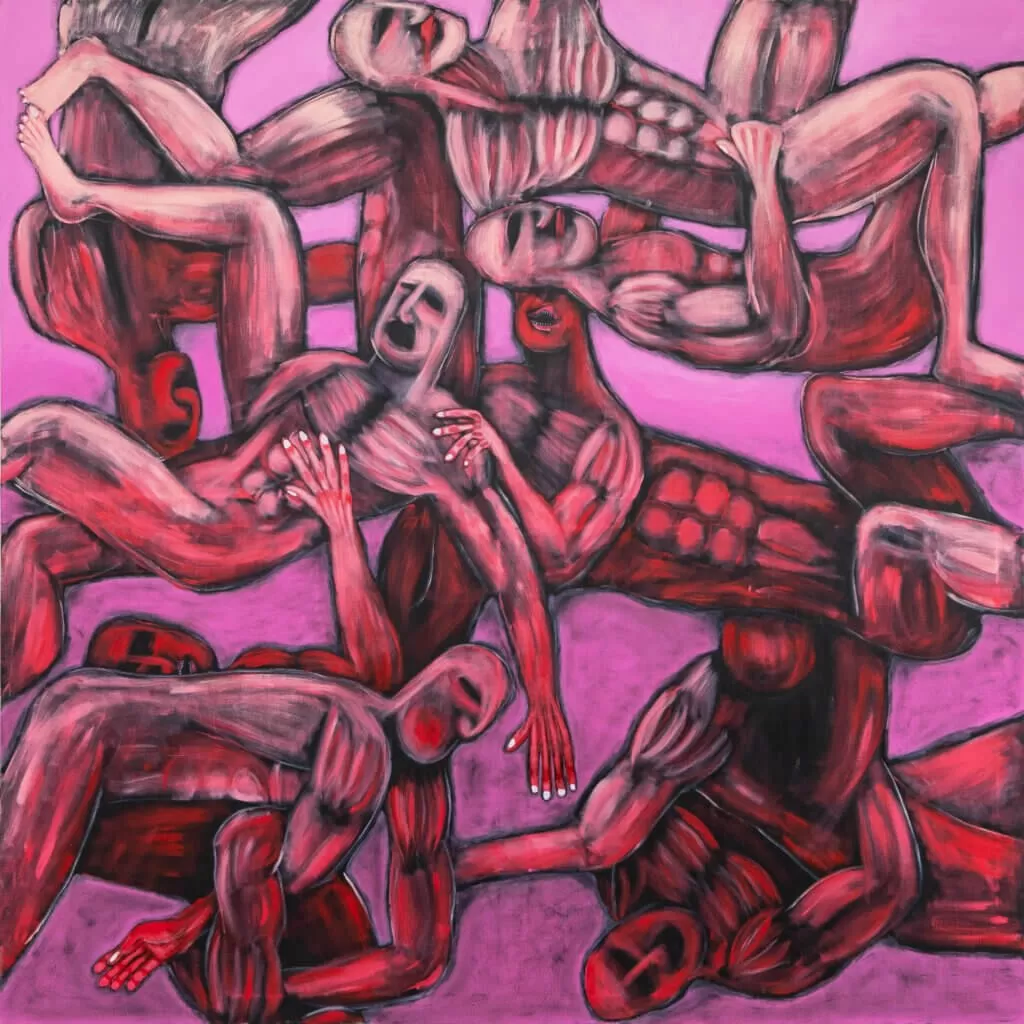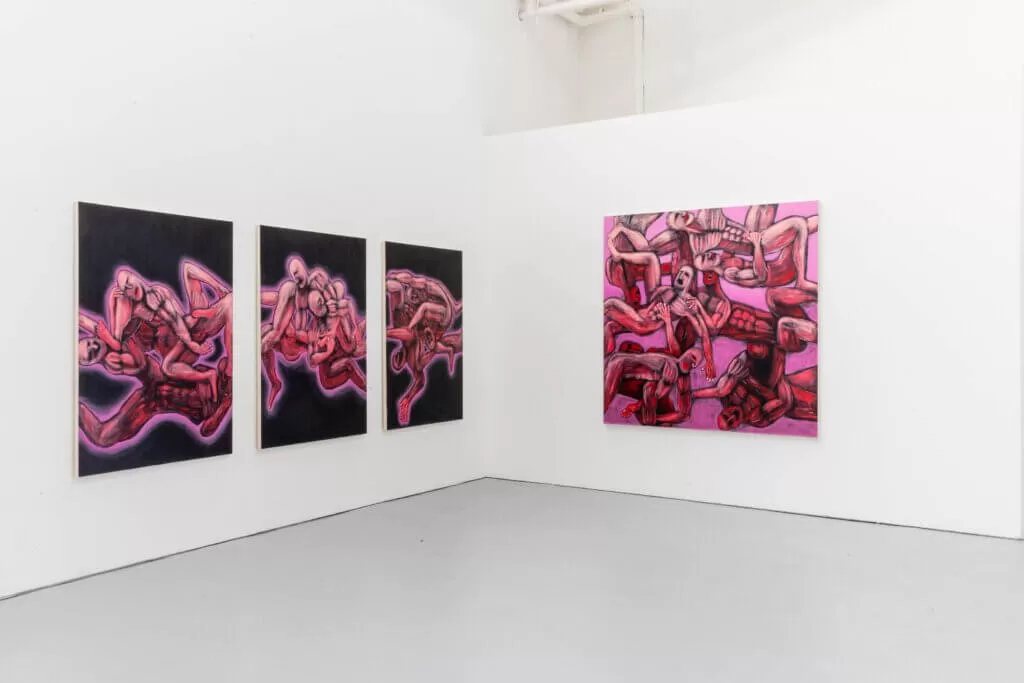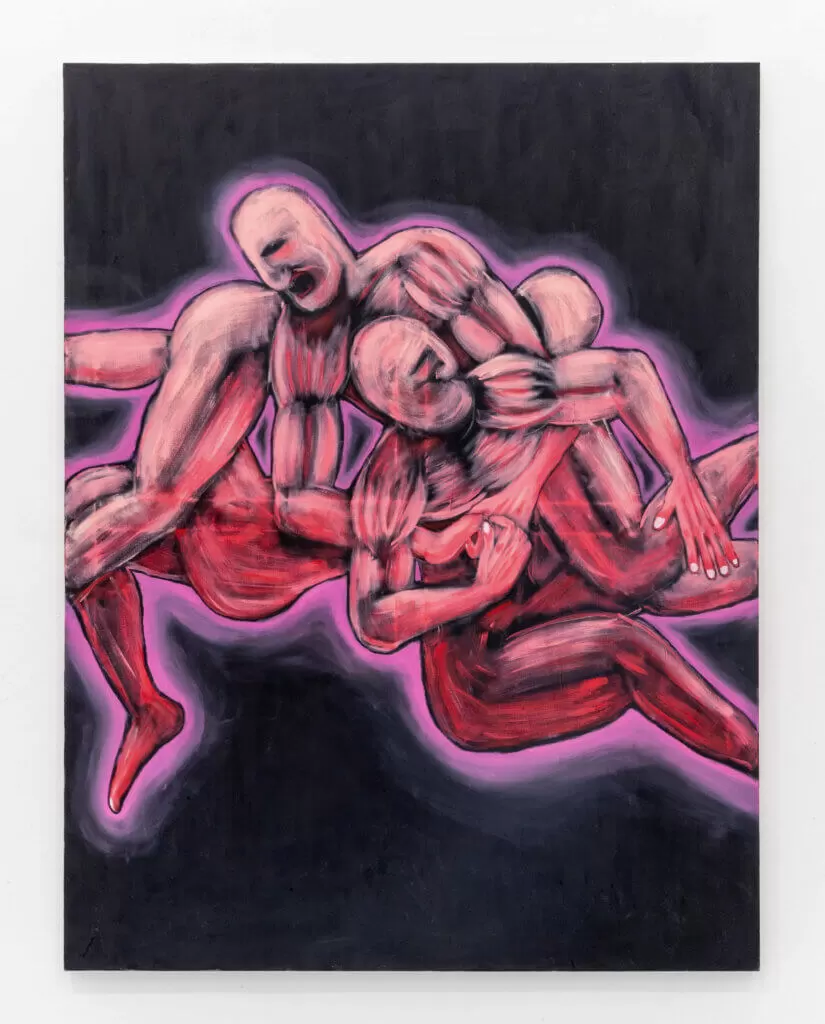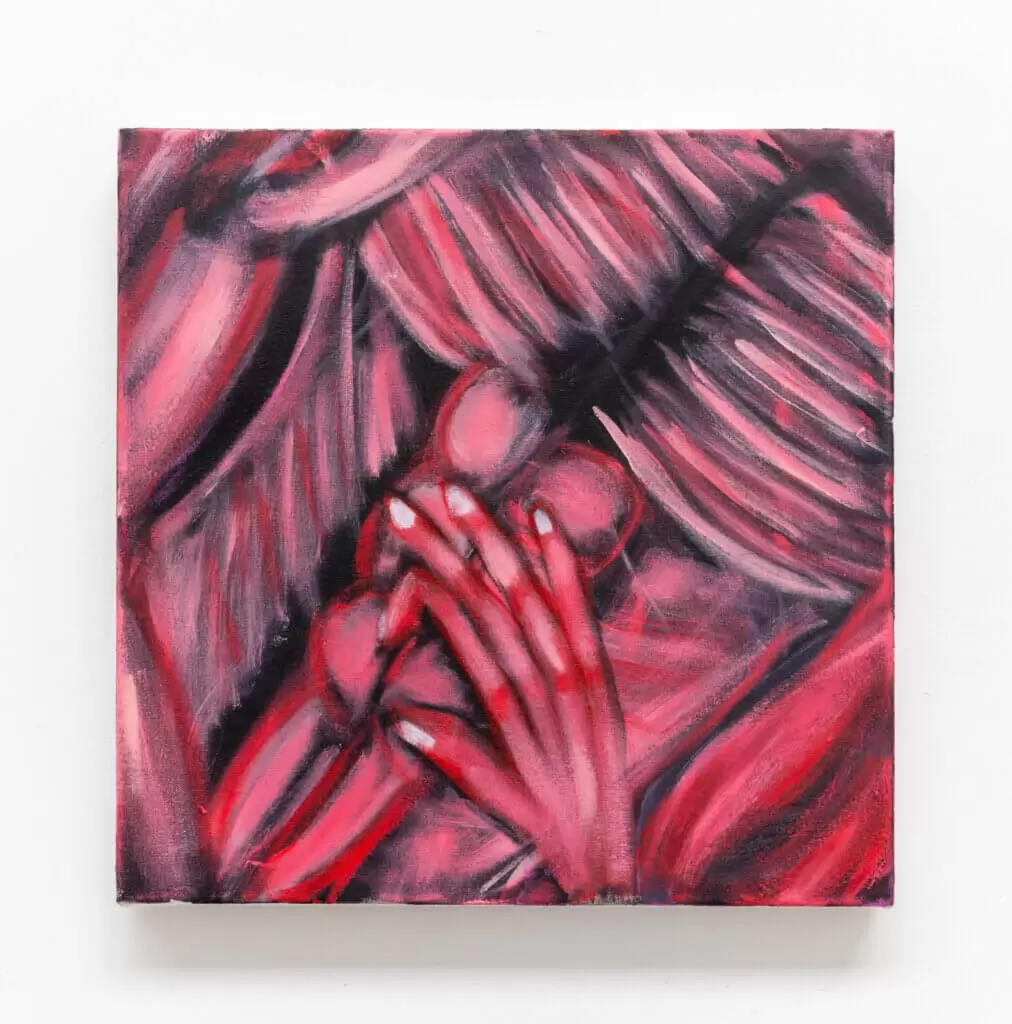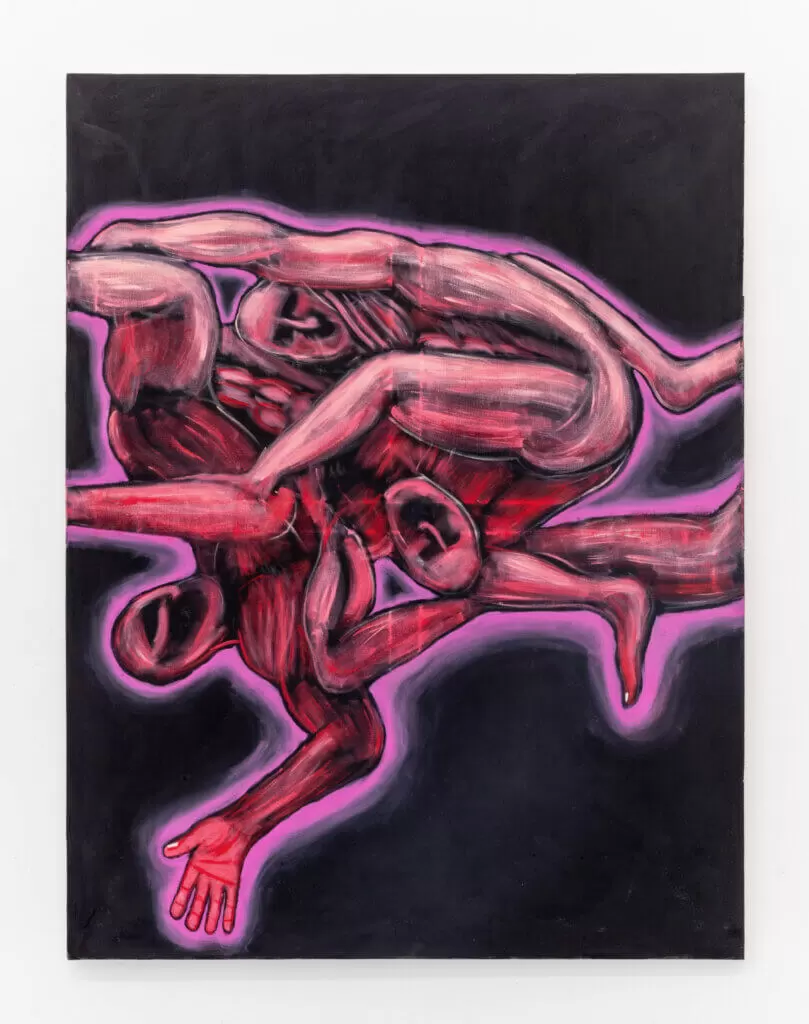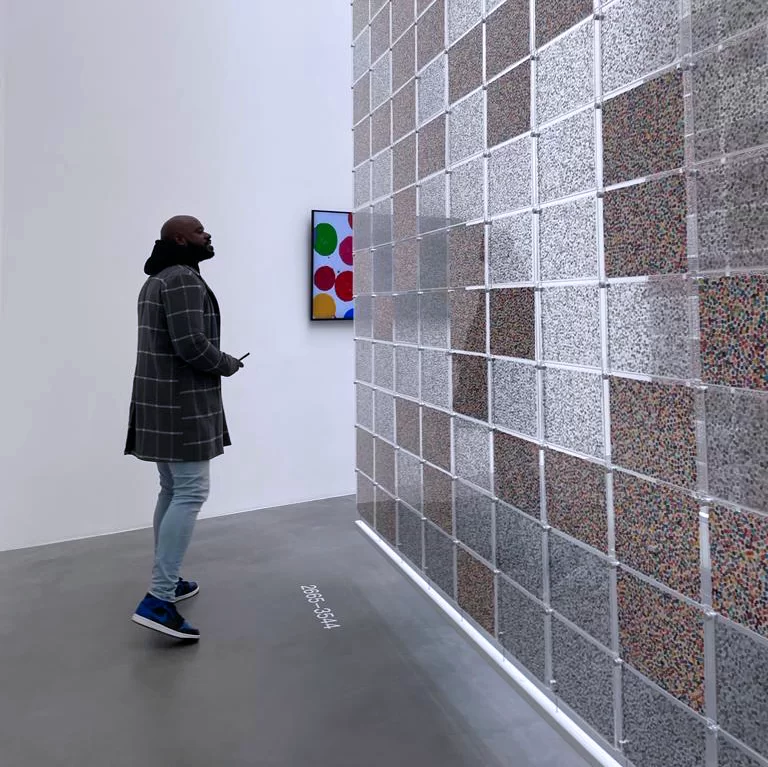London-based artist Marcus Nelson examines mental health and the ideal of masculinity inspired by his experiences as well as his participation in aggressive contact sports as a youth. Nelson recognises the repressive feelings men frequently feel towards traits that society considers inadequate parts of masculinity. He employs painting to reveal these internalised emotions to form dialogue questioning the toxic pool of contradictions surrounding the masculine ideal and its straitjacket governance on feelings.
In both a cathartic and communicative way, I use my own troubled experiences as a man to create paintings that can discuss masculinity on a much larger societal scale.
Marcus Nelson
Depicted in distorted scenes that engulf Nelson’s ghostly figurative’s seized in an aggressive stance, unmask by their heartfelt demeanour. Nelson enables the viewer to step out of their reality to embrace the agony that plagues masculine culture.
We managed to catch up with Marcus during his solo exhibition ‘Scar Tissue’ at The Bomb Factory, which is on until 18th June 2021.
Q: For those who don’t know you, can you please introduce yourself?
Marcus Nelson: My name is Marcus Nelson, and I’m a painter based in North London.
Q: What is your inspiration, and why do you do what you do?
Marcus Nelson: In both a cathartic and communicative way, I use my own troubled experiences as a man to create paintings that can discuss masculinity on a much larger societal scale.
Having grown up competing in martial arts and recently suffering life long eye injuries because of receiving too much head trauma. I want to use my own story to highlight the often unattainable and toxic masculine ideal by using wrestling and boxing photographs as the basis of my painting compositions.
With suicide being the number one killer of men under the age of 50 in the UK, I use my practice to interrogate why these tragedies occur and emphasise a severe cultural trauma that needs discussion.
Q: What can you tell us about your creative process?
Marcus Nelson: I will often watch fights or competitions online, and I look for moments where I feel there is a duality between intimacy and brutality. When I find one of these moments, I take a screenshot and then slowly layer together images on photoshop to create my compositions.
I rarely ever do drawings, so this is my way of sketching ideas out. When I know roughly what I’m working towards, I paint directly onto the canvas. The digital sketch acts as a springboard for my interpretation, and so the outcome can look quite different. Texture and loose mark-making are significant features within my work, so I create traps for myself in which “happy accidents” can occur.
Q: Your work has a running theme featuring masculine figures in distorted yet abstract ambience. Can you tell us the motivation behind this?
Marcus Nelson: I am very much interested in the space between things. For example, when does an embrace become an assault? When does pain become pleasure? At what point does an image become threatening? Every feature of my work could be read in two ways, including the overall mood of the paintings.
I like the figures floating in voids because it makes their direction of travel uncertain; they could be trapped within the canvas, or they could be moving up, or down, or left, or right.
The distortion is a way for me to further emphasise trauma underneath the surface of the work; I want the images to feel as if everything is slowly breaking apart under the weight of its monumentality.
Q: In your upcoming solo exhibition what can attendees expect to experience?
Marcus Nelson: I hope that people can come to this exhibition and emotionally connect with the artwork. These paintings are some of the most honest I have ever made, but more importantly, they address a subject matter that I feel everyone can relate to; these figures could be you, your father, your brother or your son. Aesthetically the work has changed quite a bit for this exhibition, so people can also expect to be shocked by the development.
Q: What is the first piece of art that you created that cemented your path as an artist?
Marcus Nelson: Making art has always calmed me down and allowed me to process my life, so in that sense, I always knew I would end up doing something creative, whether as a job or a hobby.
But I remember precisely a few years ago making a painting and thinking that I had too many more to make before genuinely understanding the medium. I became utterly addicted to it, and it got to the point now where I’m pretty useless at doing anything else.
Q: In your opinion, what is the lasting impact of art, and what does art mean to you?
Marcus Nelson: As artists, we have the privilege of documenting and responding to the contemporary world that we live in, and I believe we have a responsibility to do so.
In my opinion, the lasting impact of art will always be of communication: some of the most potent artwork ever made has been in response to the worst possible circumstances humanity has ever faced. This is why I believe that despite the pandemic’s pressures on the world in the last year, I think we’re about to see a renaissance of inspiring work being made in response to it.
Q: What are your thoughts on NFT art, and will you create any digital edition of your work?
Marcus Nelson: I believe that NFTs are a part of the art world’s natural progression into the digital age; however, I won’t be doing anything like that in my practice for the foreseeable future.
In some ways, I see my style as resistance to digitalisation and a return to a more traditional way of painting, by depicting the nude form and simply using a brush. I feel that any reproduction of the original works would take something away from them.
Q: What’s next for you as an artist?
Marcus Nelson: After my solo show, I plan to work with a choreographer to create a movement piece using male performers; once we’ve recorded something, I want to use these images as the basis for a new series of paintings.
I’m very much looking forward to having some creative control over the subjects I’m working on for a change, and it will be nice to see how the paintings develop as a result.
©2021 Marcus Nelson


